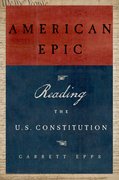Five things you may not know about Chester Arthur
By Michael Gerhardt It is hard to imagine there is anything worth knowing about Chester Arthur. Many Americans might not even recognize that he was a president of the United States. By almost any measure, he is one of our most forgotten presidents: Never elected to the office in his office and a political hack […]




